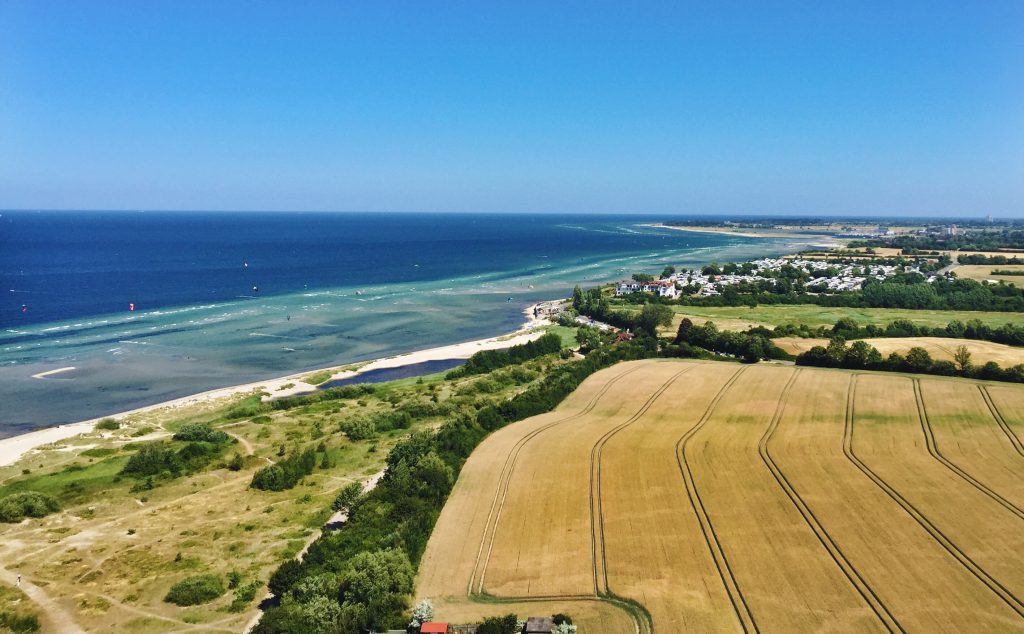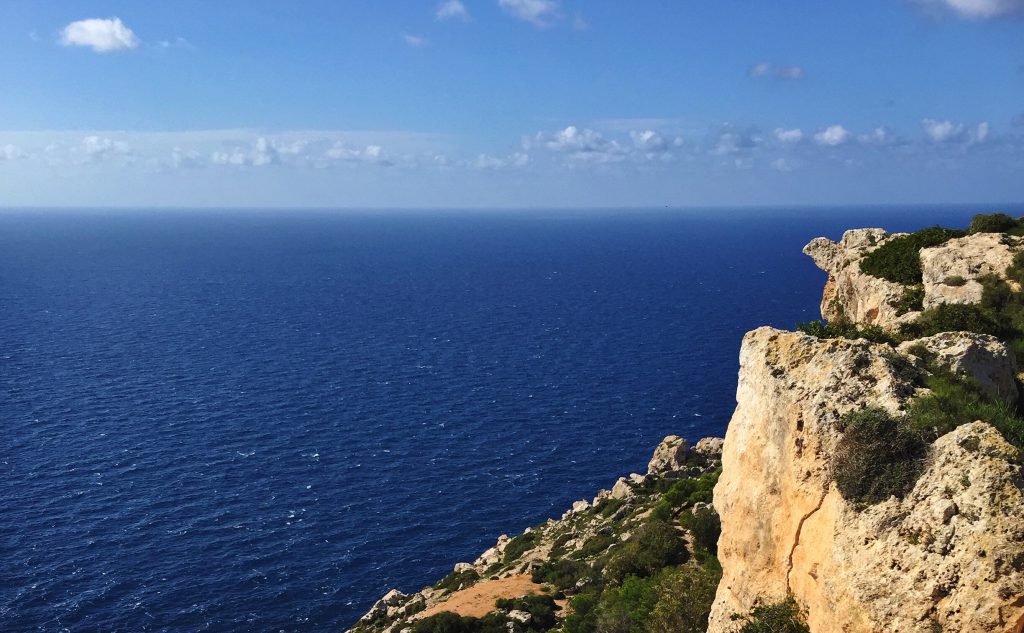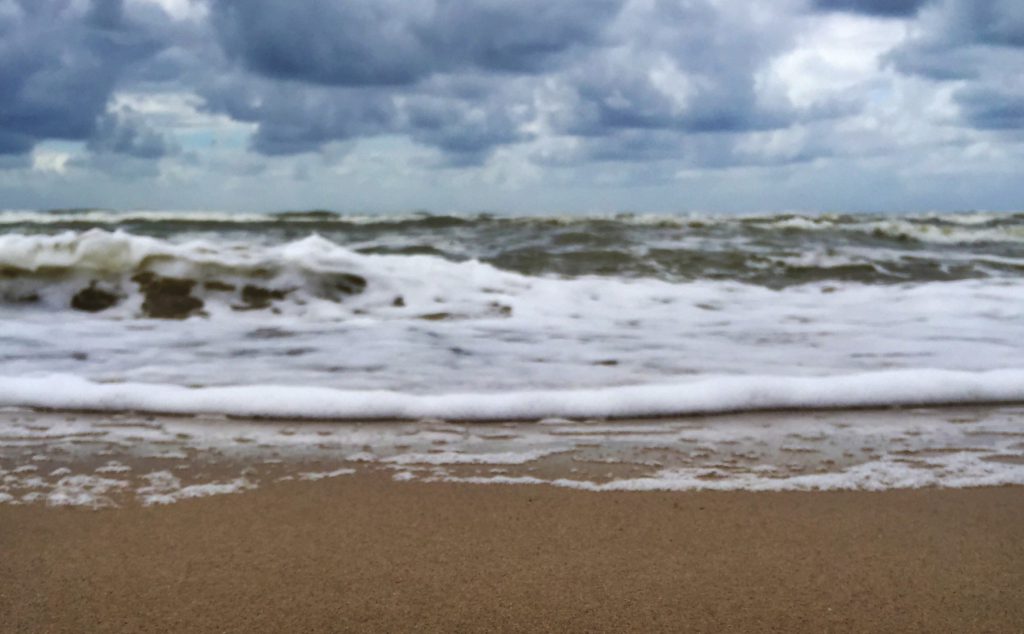
Guest post by Alice Langhans: Scientific reasons why the ocean boosts mental health
My friend Alice runs a really interesting Instagram account that I love following. She posts about being a PhD student in physics didactics, does #experimentalfriday (which you might remember from her recent guest post on my blog), gives helpful advice for mental health topics and takes beautiful pictures. Check it out — @scied_alice. A couple of days ago she posted about having found some research on how proximity to the ocean and a person’s state of mind are connected. So obviously I had to ask whether she would write about it for my blog, and I am super stoked she did! Here is what she writes:
Scientific reasons why the ocean boosts mental health
When was the last time you were at the sea and just took in everything it offered? The smell of salty water, the light breeze on your skin, the sound of rolling waves. Do you remember the feeling it gave you? That sense of calmness and relaxation, the inner peace and quiet, ultimately setting you in a state of easy meditation, giving you that break from everyday life you just needed? The impact of the ocean on physical, mental and emotional well-being seems so obvious and intuitive but there is actual scientific research on that topic. Who wouldn’t want to understand what exactly is going on in the humans’ mind and body when encountered with the ocean or any great body of water? So let me tell you about some of the findings I stumbled upon, researching a short post on why I myself like to live at the coast of the Baltic Sea.

I Golden Bay Beach, Malta (Picture by Alice Langhans)
It seems like yesterday, that the professor giving a speech at my graduation ceremony talked about the happiness level in several states in Germany and how lucky we are if we get a job in Schleswig-Holstein, which scored the happiest state several years in a row now (Schlinkert & Raffelhüschen, 2018). I had to smile because at that moment I had already taken a job in Kiel, the state capitol of Schleswig-Holstein. Apparently, the proximity to the coast and the access to blue (water) space has shown to have a positive effect on well-being. This could be one factor explaining the happiness level in Schleswig-Holstein, because the state is enclosed between the North and the Baltic Sea on each side and everyone I know enjoys that advantage to its fullest by spending lots of time at the waterfront. According to a British study, citizens living at the coast report better physical and mental health (White, Alcock, Wheeler, & Depledge, 2013)and Japanese colleagues, Peng and Yamashita(2016), concluded that people with ocean view from their homes were calmer than their inland neighbors. And if you are thinking of choosing a retirement home at the coast, they have good news as well: positive psychological effects were highest for elderly people.

IIBay of Kiel, Laboe, Germany (picture by Alice Langhans)
There seems to be something happening to people when visiting the beach or waterfront and scientific research finds answers to that in our senses. The feeling of calmness, relaxation and peace is stimulated by the view of the blue space. A study conducted in Wellington, NZ showed lower psychological distress in people with visibility of what they called blue space, images of the Pacific Ocean and the Tasman Sea (Nutsford, Pearson, Kingham, & Reitsma, 2016). Neuroscientist Michael Merzenich claims that being in the clear and simple environment of the ocean, humans have a sense of security and safety because it’s a stable and predictable environment (Yeoman, 2013). Makes sense, doesn’t it? Because everything unusual is instantly outstanding against the calm and flat horizon.

III Dingli Cliffs, Malta (Picture by Alice Langhans)
And there is even more to a visit to the beach than just the view of water. It’s the sheer sound of incoming waves that soothes the mind and relaxes the spirit. Sounds with wave patterns were found to be the most relaxing because they lower the cortisol level, a stress hormone and activate the parasympathetic nervous system, slowing us down and promoting relaxation (Heiser, 2017). This has the same effect as meditation.

IV Hargen an Zee, Netherlands (Picture by Alice Langhans)
So the next time you’re at the beach: Take everything in, take a deep breath, concentrate on your body and the calmness the ocean triggers in you and enhance those positive effects the ocean has on you! Enjoy!
References
Heiser, C. (2017). What the beach does to your brain. Retrieved from https://www.nbcnews.com/better/health/what-beach-does-your-brain-ncna787231
Nutsford, D., Pearson, A. L., Kingham, S., & Reitsma, F. (2016). Residential exposure to visible blue space (but not green space) associated with lower psychological distress in a capital city. Health & Place, 39, 70–78. https://doi.org/10.1016/j.healthplace.2016.03.002
Peng, C., & Yamashita, K. (2016). Effects of the Coastal Environment on Well-being. Journal of Coastal Zone Management, 19(2). https://doi.org/10.4172/2473-3350.1000421
Deutsche Post DHL. (2018). Deutsche Post Glücksatlas 2018: Weiter hohe Lebenszufriedenheit in Deutschland. Retrieved from https://www.dpdhl.com/content/dam/dpdhl/de/media-relations/press-releases/2018/pm-gluecksatlas-20181011.pdf
White, M. P., Alcock, I., Wheeler, B. W., & Depledge, M. H. (2013). Coastal proximity, health and well-being: Results from a longitudinal panel survey. Health & Place, 23, 97–103. https://doi.org/10.1016/j.healthplace.2013.05.006
Yeoman, B. (2013). Why the Beach Makes Us Happy. Retrieved from http://barryyeoman.com/2013/02/beach-happiness-neuroconservation/
On #WorldOceansDay, revisiting one of my favourite places to wave-watch: a broken wave power plant | Dr. Mirjam S. Glessmer says:
[…] read my blog, seen my Instagram, or met me in person knows: The ocean is hugely important for me. The ocean is important for my mental health, looking at water just makes me happy and calm and content. The ocean is also the foundation of […]
Rethinking student belonging and well-being at universities - Adventures in Oceanography and Teaching says:
[…] or mindfulness and breathing, or value-based goal setting, (or (as I just rediscovered) Alice wrote a guest post on why the ocean boosts mental health! Enjoy my #WaveWatchingWednesdays, more than 80 so far!)! So how can we integrate that in our […]
#WaveWatchingWednesday - Adventures in Oceanography and Teaching says:
[…] Some #WaveWatching pics from my Insta @fascinocean_kiel for our mental health… […]
Second meeting of the "Climate Activism 101" course, and more reading - Adventures in Oceanography and Teaching says:
[…] “monolithic”, or at least boulder, and then got distracted by water. But since water is good for our mental health — why […]
Currently reading & thinking about "The best of both worlds: A critical pedagogy of place" (Gruenewald, 2003) - Adventures in Oceanography and Teaching says:
[…] are typically located in poor neighbourhoods) and also include health benefits for people (because looking at water is gooooood for you), especially in inner cities where there is little green and little water. Of course, there is also […]